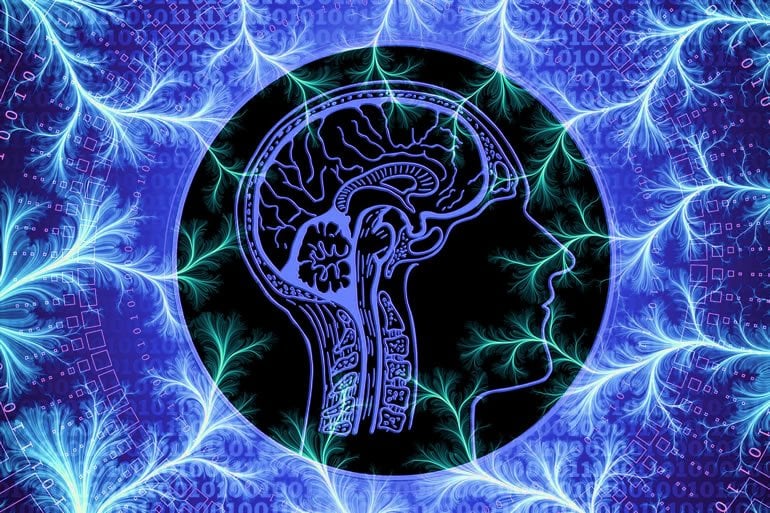Summary: Researchers have uncovered specific regions of brain tissue where aromatase is present, that drives male sexual desire. Aromatase converts testosterone into estrogen in the brain, driving male sexual activity.
Source: Northwestern University
The locus of male sexual desire has been uncovered in specific regions of brain tissue where a key gene named aromatase is present, reports a new Northwestern Medicine study in mice.
The gene regulates sexual behavior in men, and thus can be targeted by drugs to either increase its function for low sexual desire or decrease its function for compulsive sexual desire, scientists said. Aromatase converts testosterone to estrogen in the brain, which drives male sexual activity.
The study was published Sept. 10 in the journal Endocrinology.
Aromatase’s full function in the adult brain had not previously been known.
“This is the first key finding to explain how testosterone stimulates sexual desire,” said senior author Dr. Serdar Bulun, chair of obstetrics and gynecology at Northwestern University Feinberg School of Medicine and Northwestern Medicine.
“For the first time, we demonstrated conclusively that the conversion of testosterone to estrogen in the brain is critical to maintain full sexual activity or desire in males. Aromatase drives that.”
When Northwestern scientists knocked out aromatase selectively in the brain, sexual activity in male mice decreased by 50%, despite their having higher levels of blood testosterone levels (compared with control male mice).
“Male mice partially lost interest in sex,” said corresponding study author Dr. Hong Zhao, research associate professor in obstetrics and gynecology at Feinberg. “Aromatase is the key enzyme for estrogen production. Estrogen has functions in males and females. Testosterone has to be converted to estrogen to drive sexual desire in males.”
If a normal male mouse is put with a female one, Bulun said, “it would chase after her and try to have sex with her. If you knock out the aromatase gene in the brain, their sexual activity is significantly reduced. There is less frequency of mating. The male mice are not that interested.”
The finding can contribute to new treatments for disorders of sexual desire, the scientists said.

Low sexual desire, clinically known as hypoactive sexual desire disorder, is a common condition and can be a side effect of widely used medications such as a category of antidepressants known as SSRIs. A treatment to boost aromatase in this disorder could heighten sexual desire, Bulun said.
On the flip side, compulsive sexual desire is another condition that can be treated by an existing systemic aromatase inhibitor, but that treatment has side effects such as osteoporosis. Now, new selective drugs that suppress only the brain promoter region of the aromatase gene can be developed, Bulun said. These new selective medications would not cause the side effects of the currently existing aromatase inhibitors.
Other Northwestern authors include David Brooks, John Coon, Cihangir Ercan and Hongxin Dong.
Funding: The study was supported by the department of obstetrics and gynecology at Feinberg School of Medicine.
About this neuroscience and genetics research article
Source:
Northwestern University
Contacts:
Marla Paul – Northwestern University
Image Source:
The image is in the public domain.
Original Research: Open access
“Brain Aromatase and the Regulation of Sexual Activity in Male Mice” by David C Brooks, John S Coon V, Cihangir M Ercan, Xia Xu, Hongxin Dong, Jon E Levine, Serdar E Bulun, Hong Zhao. Endocrinology.
Abstract
Brain Aromatase and the Regulation of Sexual Activity in Male Mice
The biologically active estrogen estradiol has important roles in adult brain physiology and sexual behavior. A single gene, Cyp19a1, encodes aromatase, the enzyme that catalyzes the conversion of testosterone to estradiol in the testis and brain of male mice. Estradiol formation was shown to regulate sexual activity in various species, but the relative contributions to sexual behavior of estrogen that arises in the brain versus from the gonads remained unclear. To determine the role of brain aromatase in regulating male sexual activity, we generated a brain-specific aromatase knockout (bArKO) mouse. A newly generated whole-body total aromatase knockout mouse of the same genetic background served as a positive control. Here we demonstrate that local aromatase expression and estrogen production in the brain is partially required for male sexual behavior and sex hormone homeostasis. Male bArKO mice exhibited decreased sexual activity in the presence of strikingly elevated circulating testosterone. In castrated adult bArKO mice, administration of testosterone only partially restored sexual behavior; full sexual behavior, however, was achieved only when both estradiol and testosterone were administered together. Thus, aromatase in the brain is, in part, necessary for testosterone-dependent male sexual activity. We also found that brain aromatase is required for negative feedback regulation of circulating testosterone of testicular origin. Our findings suggest testosterone activates male sexual behavior in part via conversion to estradiol in the brain. These studies provide foundational evidence that sexual behavior may be modified through inhibition or enhancement of brain aromatase enzyme activity and/or utilization of selective estrogen receptor modulators.







